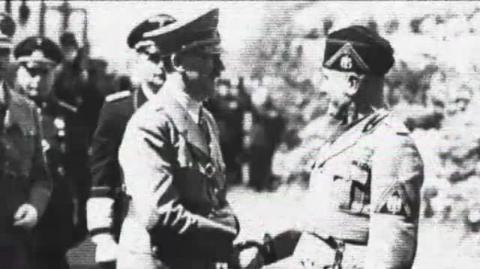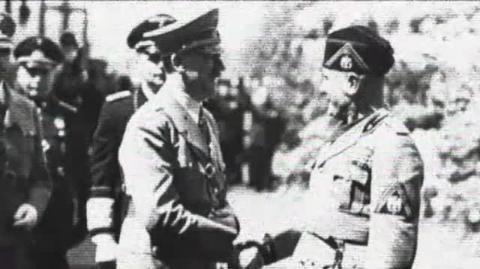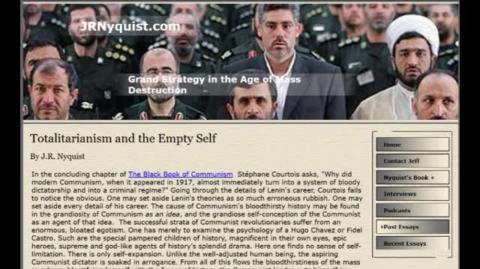Pope Pius XI, in the encyclical Quas Primas, condemns the socialisms of Josef Stalin and Benito Mussolini
Pope Pius XI wrote the encyclical Quas Primas not only to condemn secular states but also to denounce totalitarian regimes. With this document, Pius XI conveys the message that every human kingdom is doomed to fail and that God's authority is superior to human authority—the latter being transient, while the former is eternal. In times marked by the dictatorships of Josef Stalin and Benito Mussolini, this was a message of great significance.
In paragraph 19 of the encyclical, blind and absolute obedience to authority—such as that promoted by the ideologies of Stalin and Mussolini—is condemned:
“When once men recognize, both in private and in public life, that Christ is King, society will at last receive the great blessings of real liberty, well-ordered discipline, peace and harmony. Our Lord's regal office invests the human authority of princes and rulers with a religious significance; it ennobles the citizen's duty of obedience. It is for this reason that St. Paul, while bidding wives revere Christ in their husbands, and slaves respect Christ in their masters, warns them to give obedience to them not as men, but as the vicegerents of Christ; for it is not meet that men redeemed by Christ should serve their fellow-men.”
Still in the same paragraph, the encyclical denounces the abuse of authority by the governments of Stalin and Mussolini: “If princes and magistrates duly elected are filled with the persuasion that they rule, not by their own right, but by the mandate and in the place of the Divine King, they will exercise their authority piously and wisely, and they will make laws and administer them, having in view the common good and also the human dignity of their subjects. The result will be a stable peace and tranquillity, for there will be no longer any cause of discontent. Men will see in their king or in their rulers men like themselves, perhaps unworthy or open to criticism, but they will not on that account refuse obedience if they see reflected in them the authority of Christ God and Man. Peace and harmony, too, will result; for with the spread and the universal extent of the kingdom of Christ men will become more and more conscious of the link that binds them together, and thus many conflicts will be either prevented entirely or at least their bitterness will be diminished.”
In paragraph 24, the Pope returns to the traditional doctrine of the sovereignty of Christ and the Church's teaching mission, as taught by the medieval Popes:
“This evil spirit, as you are well aware, Venerable Brethren, has not come into being in one day; it has long lurked beneath the surface. The empire of Christ over all nations was rejected. The right which the Church has from Christ himself, to teach mankind, to make laws, to govern peoples in all that pertains to their eternal salvation, that right was denied”.
In this way, the encyclical directly confronts the platform of the National Fascist Party, which stated: “The State is sovereign, and this sovereignty can neither be shaken nor diminished by the Church.” Also in paragraph 24, the abuse of power by totalitarian governments is once again condemned: “Then gradually the religion of Christ came to be likened to false religions and to be placed ignominiously on the same level with them. It was then put under the power of the state and tolerated more or less at the whim of princes and rulers.”
In paragraph 24, Pius XI condemns socialism with national colors, the ideological basis of fascism: “the seeds of discord sown far and wide; those bitter enmities and rivalries between nations, which still hinder so much the cause of peace; that insatiable greed which is so often hidden under a pretense of public spirit and patriotism, and gives rise to so many private quarrels; a blind and immoderate selfishness, making men seek nothing but their own comfort and advantage, and measure everything by these; no peace in the home, because men have forgotten or neglect their duty; the unity and stability of the family undermined; society in a word, shaken to its foundations and on the way to ruin”.
Beyond its doctrinal content, the encyclical establishes the Feast of Christ the King to be celebrated on the last Sunday of October—a date chosen to symbolically replace the fascist commemoration of the March on Rome. The Pope further clarifies in paragraph 21 that this feast was intended to emphasize the universality of the Catholic faith, in contrast to the socialism promoted by totalitarian regimes: “For people are instructed in the truths of faith, and brought to appreciate the inner joys of religion far more effectually by the annual celebration of our sacred mysteries than by any official pronouncement of the teaching of the Church. Such pronouncements usually reach only a few and the more learned among the faithful; feasts reach them all; the former speak but once, the latter speak every year - in fact, forever”.
REFERENCES:
https://www.veritatis.com.br/q....uas-primas-pio-xi-11
https://homemcatolico.blogspot.....com/2019/02/fascism
https://www.storico.org/italia...._fascista/persecuzio
https://malevus.com/similariti....es-between-stalin-an
https://www.vatican.va/content..../pius-xi/en/encyclic
0



 Life_N_Times_of_Shane_T_Hanson
Life_N_Times_of_Shane_T_Hanson


 TheRareBreedTheory
TheRareBreedTheory
 Doggk
Doggk
 Styxhexenhammer666
Styxhexenhammer666
 Timcast IRL
Timcast IRL


 SoloMan Zone
SoloMan Zone
 JudgeNapolitano
JudgeNapolitano
 The David Knight Show
The David Knight Show
 Donovan Sharpe
Donovan Sharpe
 KEEPER
KEEPER
 Sant77
Sant77

 StevenCrowder
StevenCrowder




Log in to comment